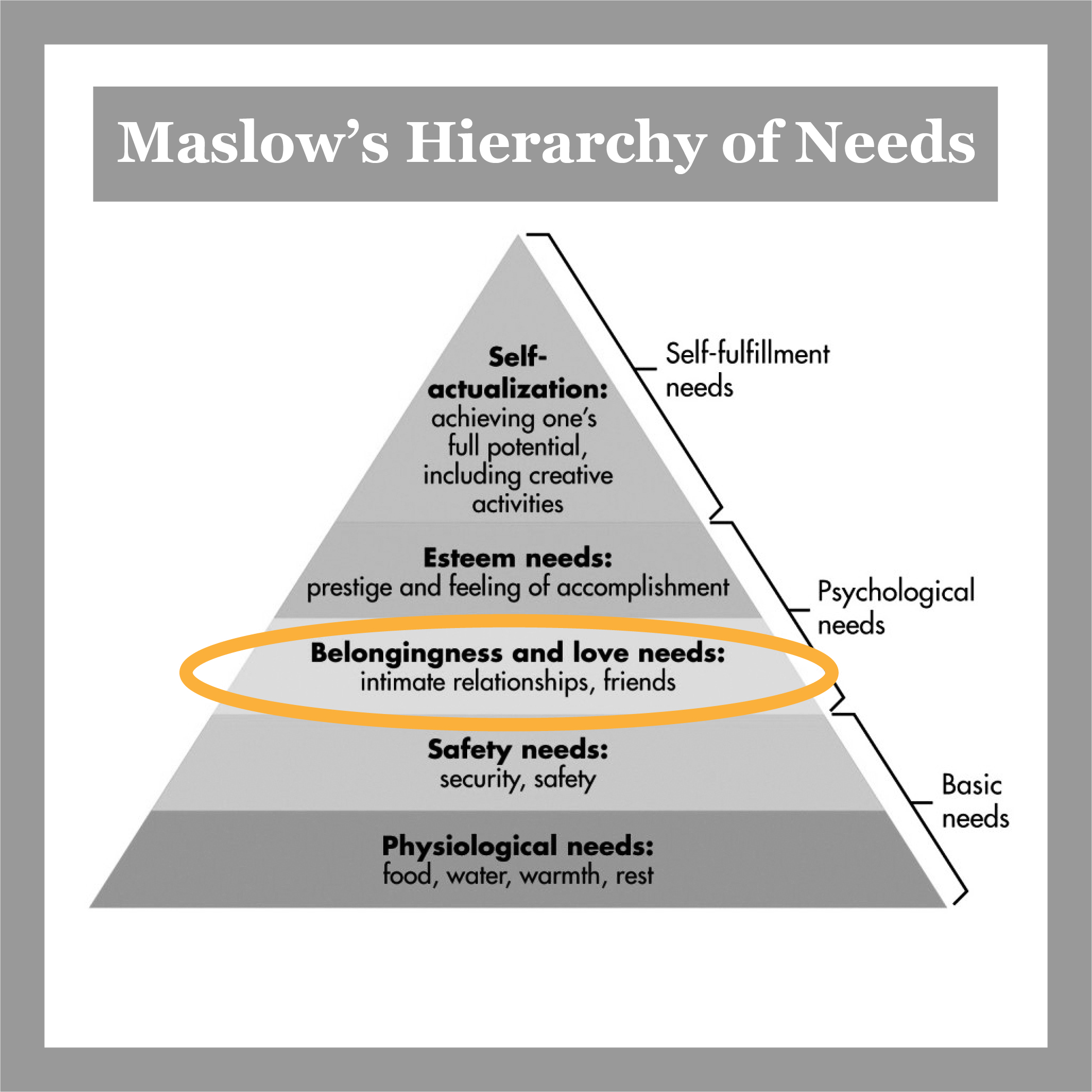Why Maslow's Hierarchy of Needs Is Wrong
by Anne Marie Vivienne
photo by Tanathong Toochinda
Maslow’s famous Hierarchy of Needs tells us that humans, in order to survive, first need food, shelter, and warmth. He claims that these human needs are the foundation of a pyramid that leads to self-actualization. However, UCLA professor and social neuroscience researcher Matthew Lieberman argues that Maslow got it wrong. Food, shelter, and warmth are not the foundation of our human needs.
In his book Social: Why Our Brains Are Wired to Connect, Lieberman shows how the latest science is revealing that, above all else, our social bonds are the most essential need we have for survival. After all, how is a baby supposed to find food, shelter, and warmth on her own? Human babies are absolutely helpless, and must rely on others for their survival––unlike other animals who are born and can walk and gather their own food within hours, days, or months. Human babies take years to prepare their own food, become mobile in their environment, and have language and creative skills to effectively communicate and participate in a modern economy. Can you imagine a toddler trying to walk around a city bartering for food or other resources?
Yes, we need food, shelter, and warmth to survive––but none of us could have that without first belonging to someone who can ensure that we receive these fundamentals. In her book, The Village Effect: Why Face-to-face Contact Matters, Susan Pinker is one of many new voices putting old thoughts of raising independent humans to rest. She writes,
“For two-thirds of the twentieth century the parental zeitgeist was to deny babies and children any physical or emotional comfort. To make them grow up. Fast.”
The idea was that giving your baby too much attention and love would make them weak and dependent. But now science is showing why warm, trusting, and loving relationships are crucial to a child’s survival, development, and well-being. And we’re never too old to need these same relationships––you don’t grow out of a need and want to be with people, to be seen, heard, and loved.
“If we don’t interact regularly with people face-to-face, the odds are we won’t live as long, remember information as well, or be as happy as we could have been.”
THE INDEPENDENT MYTH & HOW WE'RE ATTACHED
“Isolation is a stressful state for both your body and brain, especially when you sense that you’re being rejected or judged; your body reads it as a dangerous situation...At these times, your body doesn’t have the interest in or energy for building new synaptic connections for learning. It’s simply busy saving itself.”
Many of us would like to think that we can achieve emotional and physical independence in this world, but nothing could be further from the truth. When we are kids, we form attachment styles to our caregivers which stay with us throughout our entire lives. Depending on how available, consistent, and loving your caregivers were, you develop either a secure, anxious, or avoidant attachment style that influences how you experience and respond to every relationship in your life. Like it or not, we’re attached to each other and our behavior and belief about ourselves is shaped by this.
“The emotions, thought patterns, and behaviors automatically triggered in children in attachment situations appear similarly in adults...Unfortunately, just as the importance of the parent-child bond was disregarded in the past, today the significance of adult attachment goes unappreciated. Among adults, the prevailing notion is still that too much dependence in a relationship is a bad thing.”
When we have a secure base with our partners and friends where our needs are being met, we feel more equipped and willing to pursue our individual passions and goals. Furthermore, because of these attachment systems, “we never get past the pain of rejection, just like we never get past the pain of hunger,” says Lieberman.
The reality of the survival, evolution, and thriving of the human species is that we have each other. We feed each other, we teach each other, we love each other. How curious it is that we evolved as social creatures, unable to live independently of others.



